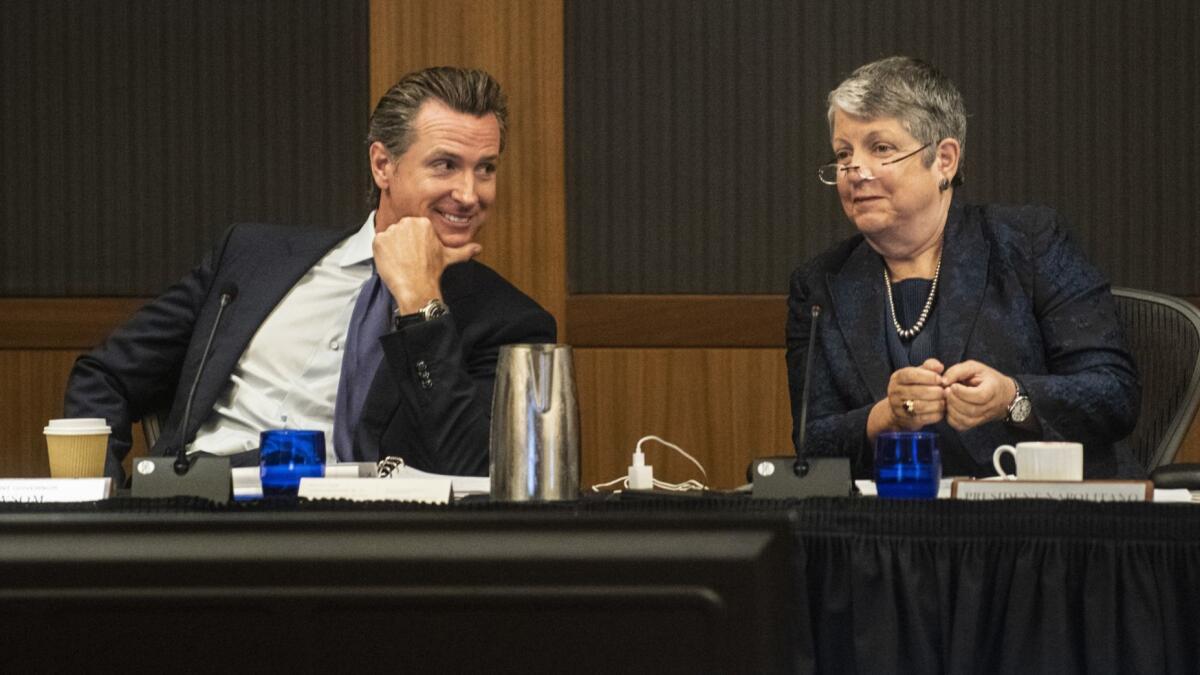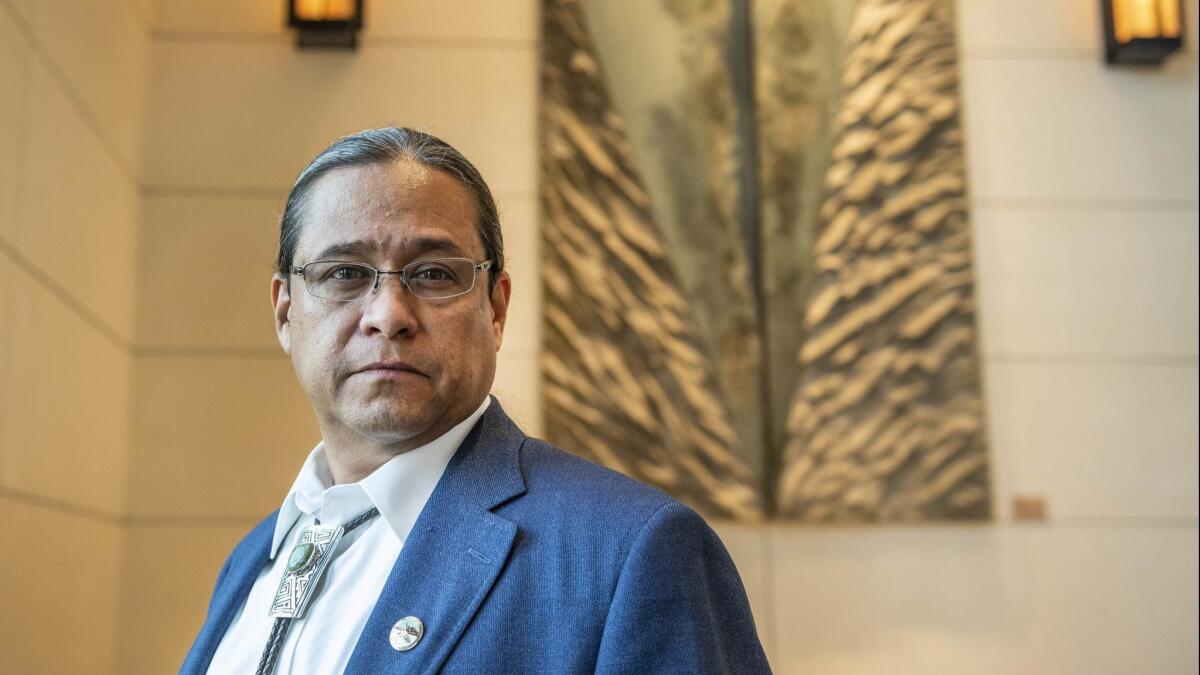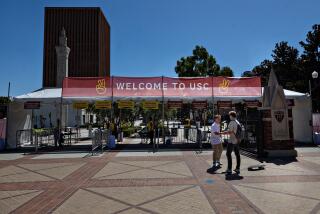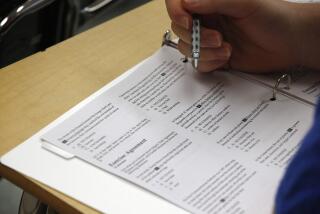UC faculty leaders announce study on whether SAT and ACT tests accurately predict college success

University of California faculty leaders announced Wednesday they would launch a study aimed at finding out whether SAT and ACT tests accurately predict college success.
Those who want the nation’s most prestigious public university system to make the standardized tests optional for admissions saw it as a positive sign, though Robert May, the chairman of the UC’s Academic Senate, would not say whether that outcome could result from the review.
More than 1,000 universities across the country — including the elite University of Chicago — no longer require the tests, which have come under growing criticism. A major study of more than 950,000 applicants to 28 colleges and universities found the tests failed to fully identify talented students capable of college success. Campuses that dropped the requirement saw an increase in applicants, including more blacks and Latinos, the April study found.
Those who think such tests should not be required also argue that they automatically place low-income applicants who can’t afford expensive test preparation at a competitive disadvantage.
“There’s a lot of research about this,” May said after his announcement at the UC regents meeting at UCLA. “We just want to be sure we have the best procedures that are the fairest.”
May said the Academic Senate would study the issue over the course of the school year at the request of UC President Janet Napolitano. In a July letter to faculty leaders, Napolitano said a review of how UC uses the tests and whether any changes were necessary was particularly important now as the university has expanded eligibility for admissions and is experiencing “unprecedented growth in demand.”
Regent Eloy Ortiz Oakley, who heads the California Community College system, already has made up his mind that the requirement should be dropped.
“It’s more of a measure of wealth than it is of preparedness,” he said. “It has created a whole industry around test prep, and it really does nothing to help a university determine who is the best applicant — so I think it should just be gone.”
The UC Student Assn. has supported dropping the test requirement as part of its push for equity in admissions, according to Caroline Siegel-Singh, the organization’s president and a UC San Diego political science major. She said she knows from personal experience that high scores can be “bought.” She said a friend of hers spent $7,000 on SAT test prep and increased her performance by 400 points to hit a near-perfect score a few years ago.
“We see the SAT and ACT as a gatekeeper to keep certain students out,” she said.
The UC Academic Senate periodically reviews standardized test requirements. In 2003, UC accepted a Senate board recommendation to adopt tests covering fundamental disciplines — language arts, math and writing — that are demonstrably related to college work and can help diagnose student strengths and weaknesses. The new UC requirements led the College Board — which administers the SAT — and ACT, Inc., to add writing components to the tests.
UC regents and administrators also vowed during Wednesday’s meeting to build better relations with Native American tribes, who have accused some campuses of failing to return the remains and cultural artifacts of their ancestors.

Mark Macarro, tribal chairman of the Pechanga Band of Luiseño Indians, told regents Wednesday that their efforts to retrieve remains have been “absolutely stonewalled” by some UC researchers.
“Unlike your ancestors, ours are still seen as specimens to many UC researchers instead of human beings with the right to a final, undisturbed place of rest,” he said.
One point of contention between the tribe and UC Berkeley has been over rights to remains found on San Nicolas Island, one of the Channel Islands. Macarro said he was hopeful that progress would be made after he met with Berkeley Chancellor Carol Christ, Napolitano and Regent John A. Pérez.
Pérez, who said his own ancestors were buried among indigenous people in an area of pre-Columbian settlement in Mexico, criticized UC’s history related to remains as “deeply flawed.” But he said he was heartened by Napolitano’s remark Wednesday that “UC has a fundamental value and that value is in support of repatriation.”
UC will work to improve its policies, said UC Provost Michael Brown, in consultation with tribal members and faculty leaders.
“It creates a really good opportunity for us to chart a new course,” Pérez said.
Twitter: @TeresaWatanabe
More to Read
Sign up for Essential California
The most important California stories and recommendations in your inbox every morning.
You may occasionally receive promotional content from the Los Angeles Times.











